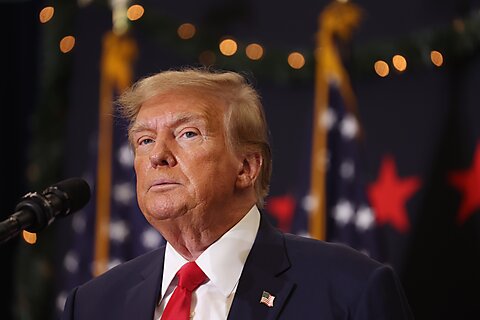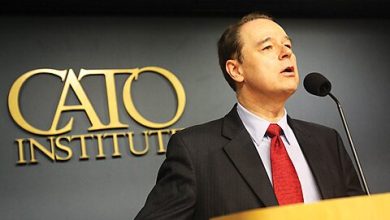Trump’s Disqualification: A Primer

Colorado is attempting to disqualify Donald Trump from running for president by excluding him from the state’s 2024 ballot. That idea was initially advanced in an upcoming law review article by two conservative law professors, and then endorsed in a 4‑to‑3 decision by the Colorado Supreme Court. On December 27, the Colorado Republican Party asked the U.S. Supreme Court to intervene. The Supremes haven’t yet accepted the case; but most legal experts agree that they should and soon will.
At issue is Section 3 of the Fourteenth Amendment—ratified after the Civil War to stop former confederate chiefs from holding US office. It says in relevant part: “No person shall … hold any office … who, having previously [served] … as an officer of the United States, shall have engaged in insurrection.” That text has raised a number of difficult questions.
#1: Who has standing to file suit? A Florida court said no standing for voters, but the Colorado court disagreed. #2: Does the US Constitution authorize states to define “engaging in insurrection?” If so, what are the limits? The state can’t just conjure up any definition. #3: Has the state designated a specific individual who can remove candidates from the ballot? Who, and by what process? A Michigan appellate court held that the secretary of state did not have that authority. #4: Does disqualification relate only to the general election, or also to the primaries? The Minnesota Supreme Court ruled that primary ballots are up to state party committees; and a decision on the general election was premature. #5: A few experts have even argued that Section 3 bars the president from holding office, but not running for office. Yet some states will not allow ineligible candidates to appear on the ballot.
Those are all tough questions, which the US Supreme Court—with three Trump appointees—will have to resolve.
I suspect that the court’s decision will rest on the three most fundamental disputes: First, did Trump engage in insurrection? Special counsel Jack Smith has alleged five infractions: (1) attempts to set aside valid election results with false claims of voter fraud; (2) efforts to have Mike Pence unconstitutionally refuse to count certified votes; (3) imploring Congress to reject lawful votes; (4) incitement of a mob that would forcibly prevent vote‐counting; and (5) deliberate inaction during the January 6 attack, despite having the duty and capacity to intervene.
The second key dispute is whether the Fourteenth Amendment’s use of the term “Officer of the United States” applies to Trump. A couple of prominent legal scholars have insisted that only appointed officers, not elected officials are covered. In fact, the trial court in Colorado refused to disqualify Trump for that reason; but the state Supreme Court disagreed.
The term “Office of President” is used a half‐dozen times in the Constitution. My sense is that the holder of the office must be an officer. Was President Nixon not an officer because he was elected, while his replacement, President Ford, was an officer because he was appointed? Was Vice President Rockefeller an appointed officer while his elected successor, Walter Mondale, was not an officer?
Even more persuasive: If a president is impeached and convicted for giving aid and comfort to our enemies, the Constitution (Article I, Section 3) says he can be disqualified from holding office. Is it logical that he cannot be disqualified under Section 3 of the Fourteenth Amendment for the very same offense a day after he leaves office? I doubt it.
Finally, the third key dispute. The US Constitution is not a legal code; it’s a set of broad principles that implement a framework for governance. That’s why many constitutional provisions first must be fleshed out by Congress, in the form of enabling legislation. In this instance, Section 3 of the Fourteenth Amendment has been “enabled” by a criminal statute that sets out punishment—including disqualification from office—for rebellion or insurrection. [fn 1] Critics of the Colorado decision point out that Trump was never charged under that criminal statute. Nor was he convicted for insurrection during his impeachment trial.
True enough. But technically, Section 3 doesn’t mandate a criminal conviction; and it doesn’t require proof beyond reasonable doubt. [fn 2] Moreover, even if Trump was not convicted by the Senate, he was charged with insurrection by the House, 232‐to‐197; and the Senate voted to convict 57-to-43—but short of the 2/3 majority required for a guilty verdict.
Nevertheless, my bet is that Chief Justice Roberts will be concerned about political repercussions if Trump is disqualified; and even the liberal justices will lean toward allowing voters to decide whether Trump is fit to be president—especially with no criminal conviction and considerable uncertainty regarding a non‐criminal application of Section 3. Meanwhile, the Colorado decision has been stayed, and Trump can remain on the ballot while lawsuits are pending in more than 15 states.
We await a Supreme Court resolution that will establish nationwide uniformity.
______________
[fn 1] 18 U.S. §2383. “Rebellion or insurrection: Whoever incites …, assists, or engages in any rebellion or insurrection against … the United States, or gives aid or comfort thereto, shall be fined … or imprisoned not more than ten years, or both; and shall be incapable of holding any office under the United States.”
[fn 2] Further: Under Section 3, Trump’s conduct need not meet the criminal standard of Brandenburg v. Ohio (“inciting or producing imminent lawless action and … likely to incite or produce such action”). Also, Section 3 need not recognize a mistake‐of‐insurrection defense. That is, intentional acts that amount to engaging in insurrection might be covered by Section 3, even if the actor wrongly believes no insurrection would or did occur. And claims that Trump is being denied due process would be applicable under the Fifth Amendment only if he were deprived of life, liberty, or property in a criminal proceeding.





